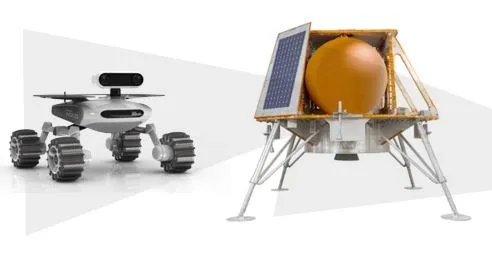Google and Xprize in a fix over race to the moon
Friday January 26, 2018 , 3 min Read
By not meeting the March 31, 2018 deadline the five finalists will not receive the $30 million prize.
After 10 years of expectations, this news comes as an anti-climax.
The Google and Xprize award of $30 million will go unclaimed because the five teams have been hindered by financial, technical and political constraints in their respective nations.
However, the five teams raised close to $90 million in investment, in total, from VCs and governments. Now, the fate of these teams hangs in the balance. What will happen to the employees?

Team Indus says it will continue its journey to build a great aerospace business. A few years ago it was a tiny startup from India with no experience in robotics or space flight. It won a $1 million prize for meeting significant milestones in developing a robot that can safely land on the surface of the Moon, travel 500 meters over the lunar surface, and send Mooncasts.
Along with them were four other global teams.
The five teams were:
- Team Indus from India
- Hakuto Japan
- Space IL from Israel
- Moon Express from the USA
- Synergy Moon (an International team)
The Google and Xprize team in a statement reported on TechCrunch said:
“After close consultation with our five finalist Google Lunar XPRIZE teams over the past several months, we have concluded that no team will make a launch attempt to reach the Moon by the 31 March 2018 deadline. This literal “moonshot” is hard, and while we did expect a winner by now, due to the difficulties of fundraising, technical, and regulatory challenges, the grand prize of the $30M Google Lunar XPRIZE will go unclaimed.
XPRIZE is exploring a number of ways to proceed from here. This may include finding a new title sponsor to provide a prize purse following in the footsteps of Google’s generosity, or continuing the Lunar XPRIZE as a non-cash competition where we will follow and promote the teams and help celebrate their achievements. Teams and the companies that own the teams have raised more than $300 million through corporate sponsorships, government contracts and venture capital, including the largest space-related series A investment of $90 million. Hundreds of jobs were created and the first commercial space companies were established in India, Malaysia, Israel and Hungary.
India’s Team Indus who will continue to build an aerospace company, in a statement said that Antrix remains committed to encouraging and promoting private enterprise in space. The question remains as to why the launch date could not be extended, and Google and Xprize must answer it because it's not always that small companies and ideas that endeavour to go to the moon. Instead of extending the deadline, sympathisers are now terming this race a “moonshot”, since it was always against the odds.
But critics will argue that it was unfair to “breakdown the stairway to heaven.” Maybe the space race is for the powerful corporate companies after all.






